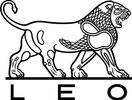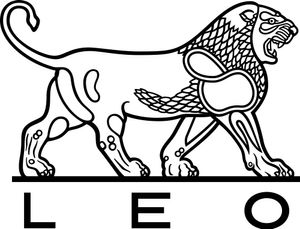LEO Pharma’s emission reduction targets validated by the Science Based Targets initiative
LEO Pharma is proud to announce the validation of its Scope 1 & 2 and Scope 3 targets by the Science Based Targets initiative (SBTi)[1].
Emission reduction targets are considered science-based if they are in line with what the latest climate science says is necessary to meet the goals of the Paris Agreement – to limit global warming to well-below 2°C above pre-industrial levels and pursue efforts to limit warming to 1.5°C.
“Climate change is impacting all of us – as individuals and as a business. Setting science-based targets provides LEO Pharma with a defined pathway for reducing our greenhouse gas emissions to keep global warming to 1.5°C and is part of our commitment to building a responsible business.” said Rhonda Duffy, Executive Vice President, Global Product Supply, LEO Pharma. “We realize that we do not have all the answers to how we will reach these targets, so we have a great task ahead of us in engaging with suppliers and business partners and looking for solutions that can help LEO Pharma prepare for the transition towards a low-carbon economy.”
“We congratulate LEO Pharma on setting science-based targets consistent with limiting warming to 1.5°C, the most ambitious goal of the Paris Agreement," said Alberto Carrillo Pineda, Managing Director, Science Based Targets at CDP, one of the Science Based Targets initiative partners. "By setting ambitious science-based targets grounded in climate science, LEO Pharma is taking action to prevent the most damaging effects of climate change."
LEO Pharma’s climate targets involve:
- Own operations (Scope 1 and 2): LEO Pharma commits to reducing our carbon emissions from own operations by more than 50% from 2019 to 2030.
- Value chain (Scope 3): LEO Pharma commits to ensuring that 75% of our suppliers by emissions have set science-based targets by 2026. Suppliers by emission cover purchased goods and services, capital goods and upstream transportation.
To ensure consistency with the most recent climate science, we will review, and if necessary, recalculate our science-based target, at a minimum every 5 years or if significant changes occur that would compromise the relevance and consistency of the existing target.
LEO Pharma’s sustainability approach is designed to respond to the societal challenges facing our business - now and in the future. Health is LEO Pharma’s core business. Climate change is a societal challenge that has an impact on health, as it undermines social factors for good health such as equality and access to healthcare. LEO Pharma is committed to operating responsibly and minimizing the negative impact of our operations on the environment.
- ENDS -
[1] The Science Based Targets initiative (SBTi) is a collaboration between CDP, the United Nations Global Compact, World Resources Institute (WRI) and the World Wide Fund for Nature (WWF). The SBTi defines and promotes best practices in science-based target setting and independently assesses companies’ targets. Currently, almost 2000 companies have joined SBTi.
Contacts
Henrik Heskjær
hdtdk@leo-pharma.com
+45 3140 6180
About LEO Pharma
About LEO Pharma
LEO Pharma is a global company dedicated to advancing the standard of care for the benefit of people with skin conditions, their families and society. Founded in 1908 and majority owned by the LEO Foundation, LEO Pharma has devoted decades of research and development to advance the science of dermatology, and today, the company offers a wide range of therapies for all disease severities. LEO Pharma is headquartered in Denmark with a global team of 5,800 people, serving millions of patients across the world. In 2021, the company generated net sales of DKK 9,957 million.
Subscribe to releases from LEO Pharma
Subscribe to all the latest releases from LEO Pharma by registering your e-mail address below. You can unsubscribe at any time.
Latest releases from LEO Pharma
LEO Pharma to present at the 44th annual J.P. Morgan Healthcare Conference7.1.2026 13:00:00 CET | Pressemeddelelse
Ballerup, Denmark, January 7, 2026 – LEO Pharma, a global leader in medical dermatology, announced today that CEO Christophe Bourdon will deliver a company update at the 44th Annual J.P. Morgan Healthcare Conference in San Francisco on Tuesday, January 13, 2026, at 9:00 AM PST. With over 60 years of specialist expertise in medical dermatology and more than 90 million patients served in 70+ markets, LEO Pharma is uniquely positioned in one of healthcare’s most attractive and underserved sectors. Backed by an unmatched portfolio combining category‑leading brands with first‑in‑class innovations, the company is redefining standards of care for patients with high unmet needs. Entering 2026, LEO Pharma builds on the strong momentum of recent years, marked by robust top-line growth, significant margin expansion, and a promising pipeline. Leveraging its unique global platform, the LEO Pharma is advancing innovation as the preferred partner in medical dermatology. The J.P. Morgan Healthcare Con
LEO Pharma appoints Marika Murto to lead Global Product Strategy16.12.2025 09:00:00 CET | Pressemeddelelse
Marika Murto brings over 20 years of pharmaceutical expertise in product strategy, innovation, and business transformation Her appointment as SVP of Global Product Strategy will help unlock LEO Pharma’s portfolio potential, driving patient impact and supporting sustainable growth
LEO Pharma submits adolescent label expansion application for Anzupgo® to EMA15.12.2025 09:00:00 CET | Pressemeddelelse
LEO Pharma has submitted a label expansion application to EMA to expand Anzupgo® (delgocitinib) cream to adolescent patients (12–17 years) with moderate to severe chronic hand eczema (CHE) for whom topical corticosteroids are inadequate or inappropriate – the application has been accepted for review. The application is supported by results from DELTA TEEN, a phase 3 trial investigating efficacy and safety of Anzupgo® in adolescents with moderate to severe chronic hand eczema (CHE).1 The label expansion submission for adolescent patients demonstrates LEO Pharma's commitment to investigating use within relevant sub-populations where treatments can help make a fundamental difference for patients with skin diseases.
LEO Pharma Announces Positive Topline 32-Week Key Results in ADHAND Trial17.11.2025 09:00:00 CET | Pressemeddelelse
The ADHAND trial evaluates the efficacy and safety of tralokinumab in adult patients living with atopic dermatitis with moderate-to-severe hand involvement,1 a high burden, high unmet need population.2 At Week 16, tralokinumab showed statistically significant improvement compared to placebo in all primary and key secondary endpoints such as clear or almost clear skin, itch and pain.3 The 32-week results of the ADHAND trial builds on the positive findings observed at Week 16.
LEO Pharma delivers 8% revenue growth at CER in 9M 2025 and updates full-year outlook6.11.2025 09:00:00 CET | Pressemeddelelse
Ballerup, Denmark, 6 November, 2025 - In the first nine months of 2025, LEO Pharma continued its robust revenue growth, with significantly improved profitability and free cash flow. As expected, growth accelerated in the third quarter, with the global rollout of Anzupgo® gaining further momentum after its September launch in the U.S. The 2025 financial outlook is updated to reflect the addition of Spevigo® to the portfolio, reinforcing LEO Pharma’s commitment to advancing innovation and expanding access to care. Highlights LEO Pharma’s revenue increased by 7% to DKK 10,064 million, and by 8% at constant exchange rates (CER), entirely driven by organic growth. The revenue growth was led by North America (+27% at CER), with Europe (+2% at CER) and Rest of World (+6% at CER) also contributing to the overall growth. Revenue from the Dermatology portfolio grew by 9% (CER), driven by the Strategic brands Adtralza®/Adbry® and Anzupgo®, which combined had a revenue increase of 41% (CER), in ad
In our pressroom you can read all our latest releases, find our press contacts, images, documents and other relevant information about us.
Visit our pressroom
